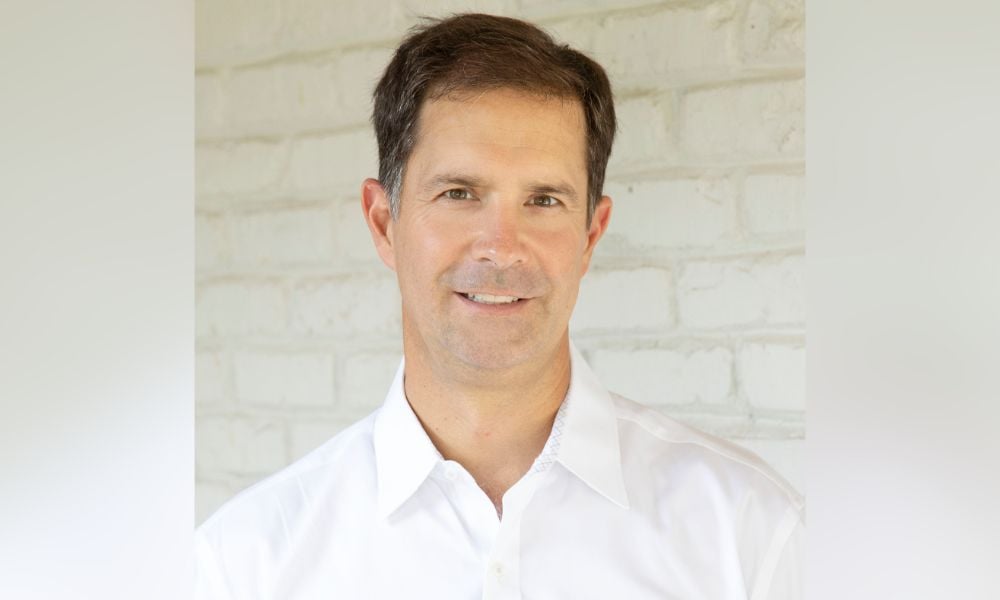

Adulthood isn't what it used to be. The paths people take to it look radically different from what they used to, and there are lessons for financial advisors about how to communicate with different generations.
In short, younger folks want to hear what advisors can do for them, and older ones want to know where advisors have been, said Cam Marston, an author who studies generational differences, speaking last week at the Charles Schwab Impact conference in San Francisco.
“People are becoming independent at older ages,” Marston said. “Independence is a life stage. You move through this life stage, and you’re different on the other side.”
Even since the 2008 financial crisis that has changed, he said. In 2007, about 26 percent of young adults lived with their parents, and that increased to 33 percent in 2021. Point to student loan debt, inflation, stagnant wages, or the increasingly out-of-reach promise of homeownership – it’s harder for many to strike out on their own. Household debt relative to wages is higher than ever.
“Adulthood costs a lot more than it ever has before.”
Advisors should try to be empathetic to that, he said. That can mean being encouraging to clients who take the smallest of steps to improve their financial outlooks, he said.
That is helpful in part because younger generations – such as younger Gen Xers, as well as millennials – grew up being rewarded for effort, rather than results, he said, illustrating that with the example of a kid in recreational swim league getting a ribbon for seventh place.
“We’re recognizing effort,” he said to the RIA audience at the Schwab event. “If you feel bile gurgling in the back of your throat, I get it. But it works.”
Compared with older generations, younger folks are less likely to be married – only about half are, and they tend to get hitched later in life, he said. Men are also less likely to have higher education and to be living independently.
A general message for such clients who are dealing with financial uncertainty is that their fears are common and that the main thing to focus on is taking action, he said.
With those concerns in mind, younger Gen Xers, millennials, and now Gen Z investors want to know what advisors can do for them. They are more likely than older investors to be receptive to messages that appeal to their egos and how their circumstances are unique, Marston said.
Older Gen Xers and baby boomers, though, are more likely to be interested in an advisor’s history. Name recognition matters, as does job tenure and credentials.
“How to talk to them is predictable based on their generation,” Marston said.
Some survey data appear to back that up.
While most, 59 percent, of baby boomers cited professional certification as being highly important in their selection of a financial professional, the same were true for just 35 percent of Gen Z investors and 47 percent of millennials, data from consumer-research firm Hearts & Wallets show. Fourteen percent of Gen Z respondents told the firm that credentials were unimportant, compared with only 4 percent of boomers and 5 percent of millennials who said they felt similarly.
Financial services companies that offer advice on different levels have also been responding to the “what can you do for me” need among younger customers, Hearts & Wallets found. Firms increasingly are framing advice in a “how to succeed” framework nearly as often as the traditional success/failure model, at 42 percent and 45 percent, and some advice experiences now include next steps for people to improve their financial paths (13 percent), according to the research group.
In any case, people tend to have some of the same fears as they progress through different stages in life, Marston said.
“Their fears are predictable,” he said. “And if we know their fears, we can address them before they arrive.”
For early adults, that is often around their ability to earn and having the discipline to save, he said. For young parents, it’s about having what it takes to provide. Around midlife, it’s about having funds and good health to retire on favorable terms. At retirement, that can be how to spend one’s time and whether that is fulfilling. And in older age, it’s a question of how one will be remembered, he said.
Predicting some of those challenges and fears helps advisors be able to respond, he said.
“You have solutions to every one of these fears.”

The agent, Todd Bernstein, 67, has been charged with four counts of insurance fraud linked to allegedly switching clients from one set of annuities to another.

“While harm certainly occurred, it was not the cataclysmic harm that can justify a nearly half billion-dollar award to the State,” Justice Peter Moulton wrote, while Trump will face limits in his ability to do business in New York.

Sieg, 58, was head of Merrill Wealth Management, left in 2023 and returned that September to Citigroup, where he worked before being hired by Merrill Lynch in 2009.

Technology can do a lot of things, but advisors still have undeniable value

Two longtime RIA industry figures have joined the board of directors at TaxStatus, a fintech company that garners thousands of IRS data points on clients to share with advisors for improved financial planning oversight and time savings.
Orion's Tom Wilson on delivering coordinated, high-touch service in a world where returns alone no longer set you apart.
Barely a decade old, registered index-linked annuities have quickly surged in popularity, thanks to their unique blend of protection and growth potential—an appealing option for investors looking to chart a steadier course through today's choppy market waters, says Myles Lambert, Brighthouse Financial.
